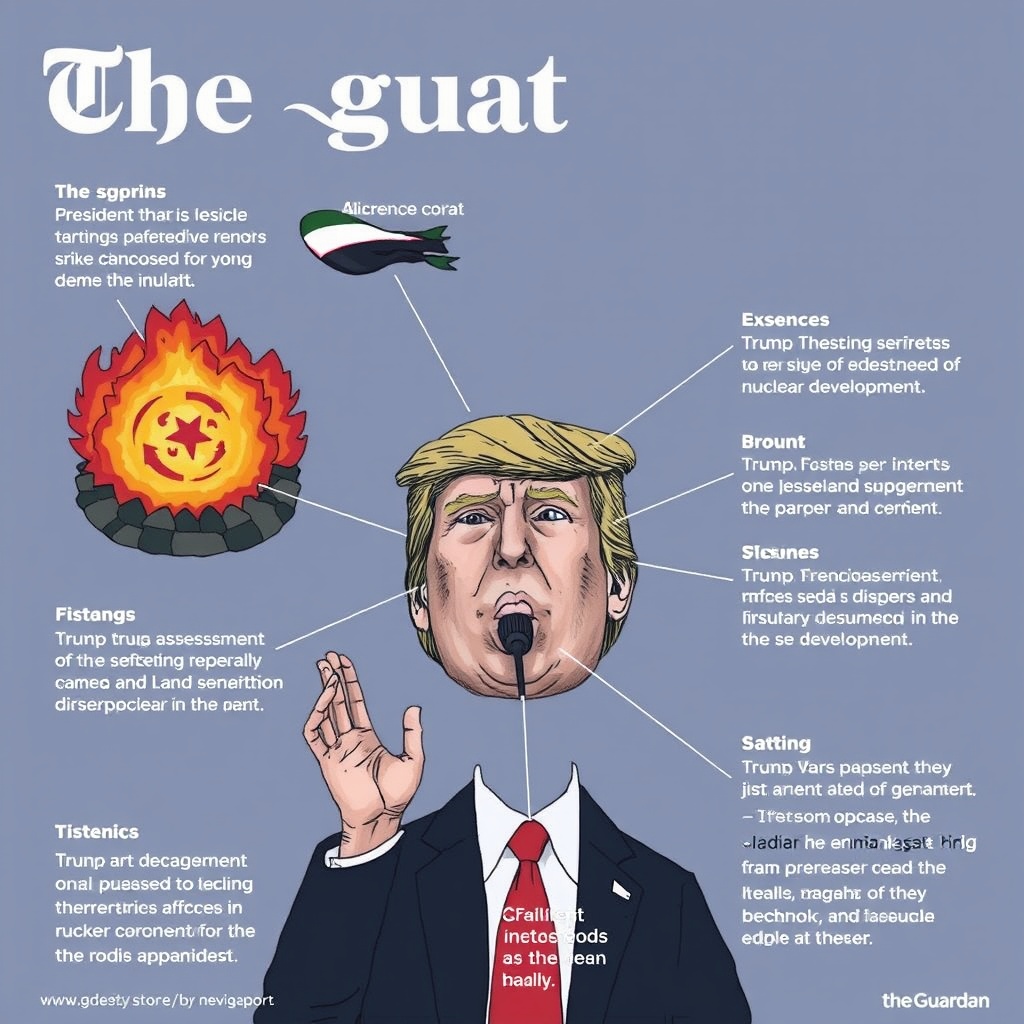Introduction
The relationship between the government and the media has always been complex, with both parties often finding themselves at odds over issues of transparency and national security. Recently, this delicate balance has been put to the test as President Trump considers forcing journalists to reveal their sources regarding a leaked report on a potential military strike against Iran. The report in question suggests that such strikes would only temporarily disrupt Iran's nuclear development, a claim that the President has dismissed. This article will delve into the implications of such a move, exploring the potential consequences for press freedom, the role of whistleblowers in holding those in power accountable, and the historical context of government-media relations in the United States.
The Leaked Report and Its Implications
The leaked assessment, which has been the subject of much speculation and debate, centers on the effectiveness of military action against Iran's nuclear program. According to the report, any strikes would likely have a temporary impact, with Iran's nuclear development capabilities expected to resume shortly thereafter. This revelation has significant implications for U.S. foreign policy, particularly in terms of the potential consequences of military intervention. The President's dismissal of the report raises questions about the administration's understanding of the situation and its willingness to consider alternative perspectives.
The consideration to force journalists to reveal their sources in this matter introduces a new layer of complexity. Journalists rely on sources, often whistleblowers or insiders, to provide them with information that is in the public interest. The protection of these sources is crucial for a free press, as it allows for the dissemination of information that might otherwise remain hidden. By attempting to compel journalists to disclose their sources, the administration may be undermining this fundamental principle of press freedom.
Press Freedom and the Protection of Sources
The protection of journalistic sources is a cornerstone of democracy, enabling the press to hold those in power accountable without fear of retribution. In the United States, this principle is supported by the First Amendment, which guarantees freedom of the press. However, the legal protections for journalists and their sources are not absolute and can vary from state to state. In cases where national security is deemed to be at stake, the government may argue that the need to protect sensitive information outweighs the journalist's right to protect their sources.
Historically, the U.S. government has faced criticism for its handling of journalists and whistleblowers, particularly in cases involving national security. The prosecution of whistleblowers under the Espionage Act, for example, has been a point of contention, with many arguing that it chillingly affects the willingness of individuals to come forward with information that is in the public interest. The potential move to force journalists to reveal their sources in the context of the Iran report could further erode trust between the government and the media, potentially leading to a less transparent and less accountable administration.
Historical Context and Precedents
The tension between the government and the media over issues of secrecy and transparency is not new. Throughout U.S. history, there have been numerous instances where the government has sought to restrict the flow of information, often citing national security concerns. The Pentagon Papers case, in which the New York Times published a secret study on the Vietnam War, is a notable example. The Nixon administration's attempt to stop the publication was ultimately unsuccessful, with the Supreme Court ruling in favor of the Times, affirming the importance of a free press in holding the government accountable.
More recently, the Obama administration was criticized for its aggressive pursuit of leaks, with several high-profile cases involving whistleblowers and journalists. The prosecution of Chelsea Manning and the pursuit of Edward Snowden, who revealed extensive surveillance by the NSA, highlighted the challenges faced by those who seek to expose government secrets. The current administration's consideration of forcing journalists to reveal their sources continues this trend, raising concerns about the future of press freedom and the ability of the media to serve as a watchdog over government activity.
Conclusion
The potential move by the Trump administration to force journalists to reveal their sources regarding the leaked Iran report has significant implications for press freedom and the role of the media in holding those in power accountable. The protection of journalistic sources is essential for a functioning democracy, allowing for the dissemination of information that is in the public interest. As the U.S. government continues to navigate the complex landscape of national security and transparency, it is crucial that the principles of press freedom are upheld.
Looking to the future, the relationship between the government and the media will likely remain contentious, particularly in cases involving national security. However, it is through the protection of press freedom and the encouragement of whistleblowers that democracy can be strengthened. The media plays a vital role in ensuring that those in power are held accountable, and any efforts to undermine this role must be carefully considered and debated. Ultimately, the balance between secrecy and transparency is delicate, and it is the responsibility of both the government and the media to ensure that this balance is maintained in a way that serves the public interest.


Leave a comment